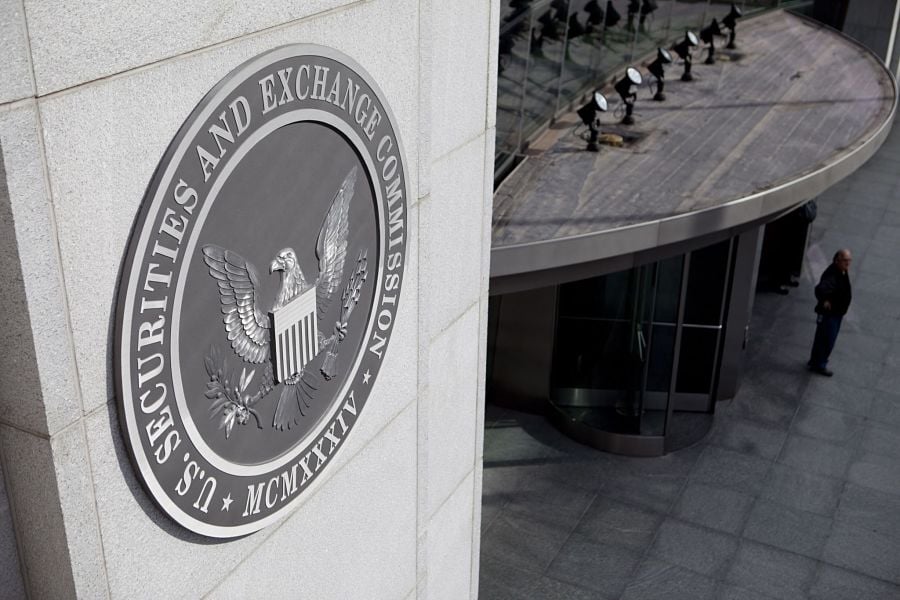

The Securities and Exchange Commission recently updated rules that govern how investment fund names must match how the fund is actually invested. It may sound obvious, but for years investors in mutual funds and ETFs have been investing in products whose actual portfolio holdings can stray dramatically from what is implied by the name of the fund.
Commonly referred to as style “drift,” that drift or misalignment often reaches levels that may constitute mis-selling of financial products. The challenge has been to pin down portfolio holdings in actively managed portfolios that engage in regular trading and turnover of positions. Until now, more comprehensive rules and monitoring have been missing.
After nearly two decades, the so-called names rule contained in the Investment Company Act has been updated to close existing loopholes regarding thematic or investment style funds, including ESG products, to ensure a better match between fund names and fund holdings. Consider, for example, a fund name that indicates an investment focus, such as Large Cap Value. If the fund actually has much of its assets invested in mid- and small-cap growth stocks, investors are being blatantly misled. While this might be an extreme example, it's not uncommon for managers to dip into other styles of investing to beat their benchmark index or to take advantage of hot sectors or industries outside the bounds of their investment thesis.
In many ways, this updated names rule is the direct result of a new SEC emphasis on preventing greenwashing, in which a fund is misleading investors with a name or advertisements that touts the fund as an environmental, climate or sustainable investment strategy. By ensuring a closer alignment of fund holdings with those ESG names and claims, such funds will now be subject to stronger disclosure, reporting, and review requirements under the final rule.
The ESG name game has become particularly concerning as many investment houses have hastened to add ESG-focused funds to meet investor demand. The rapidly growing ESG fund category and assets under management have increased several-fold in just a few years as more investors seek to have their investment dollars allocated to businesses and industries they feel better address their environmental, social and corporate governance values. There have been clear instances where this rush to meet investor demand has resulted in products that were ESG-friendly in name only.
The importance of the names issue should also serve as an important reminder for all mutual fund and ETF investors — if those investors or their investment advisors are making investment decisions based primarily on the fund name, it's time to pay closer attention. First, no professional advisor should be selecting fund investments for clients based primarily on the fund name. For individual investors, it is a wake-up call to improve their understanding of the full nature and details of the fund products they choose. It is vital that professionals and individuals alike conduct a more detailed examination of the new and improved fund disclosures around how terms used in the name are defined and the overall investment process, as well as fees and performance. These factors are critical to selecting investment products that meet investment objectives.
As a standard bearer of professional and ethical investment management, CFA Institute felt that the names rule changes should not completely override manager discretion and flexibility in times of market uncertainty and turmoil. The final rule does allow fund managers more time than the SEC originally proposed to resolve deviations from the baseline 80% of assets that must meet the parameters defined in the fund prospectus.
Finally, an important question for regulators and stakeholders is, who should determine what constitutes the plain-English meanings or established industry use of unsettled terms? For example, who should decide if a stock is a growth or value issue and when or if the stock crosses over from one category to another? On the ESG front, the “established” industry use and meaning of labels such as socially responsible or sustainable can be even more ambiguous.
As the revised names rule takes effect and investment companies become subject to the new SEC focus on naming and defining, we encourage regulators to avoid insistent second-guessing of how fund companies and managers execute their focused investing strategy. So too, we urge caution when making regulatory judgements based on a one-size-fits-all definition or overly narrow framework on what qualifies as plain English and established industry meanings.
In a year of active SEC regulatory action, the names rule stands out as completing unfinished business when it comes to the mis-selling of financial products. Investment fund naming conventions will become more truthful, transparent, and greenwash-free. Importantly, the regulatory action is also cognizant of the manager-investor relationship in allowing flexibility for a manager’s professional judgment and training in times of volatile and evolving market conditions. As it always has, the fund name only sets the scene. For investors of all stripes, the habit of reviewing new fund disclosures that detail the investment style and process has never been more important.
Paul Andrews is a managing director at the CFA Institute and former Secretary General of the International Organization of Securities Commissions.

Executives from LPL Financial, Cresset Partners hired for key roles.

Geopolitical tension has been managed well by the markets.

December cut is still a possiblity.

Canada, China among nations to react to president-elect's comments.

For several years, Leech allegedly favored some clients in trade allocations, at the cost of others, amounting to $600 million, according to the Department of Justice.
Streamline your outreach with Aidentified's AI-driven solutions
This season’s market volatility: Positioning for rate relief, income growth and the AI rebound
